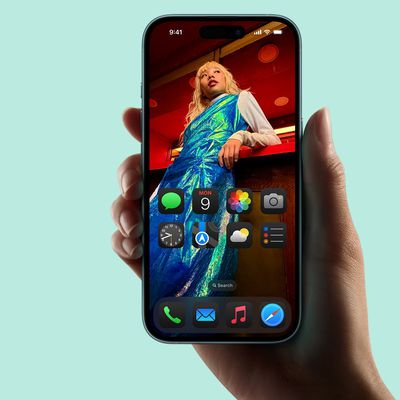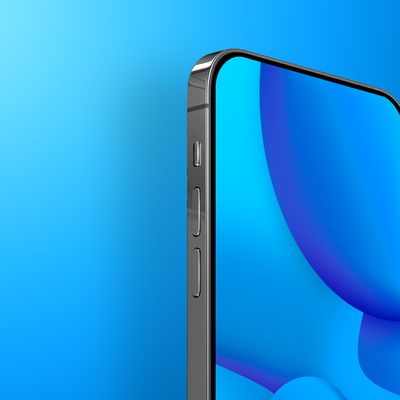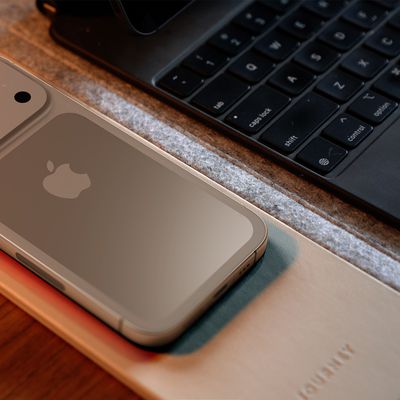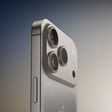iOS 16.6 Beta Lays Groundwork for iMessage Contact Key Verification
The iOS 16.6 and iPadOS 16.6 betas that Apple released today appear to include iMessage Contact Key Verification, though it is not yet clear if the feature is functional in the first beta.
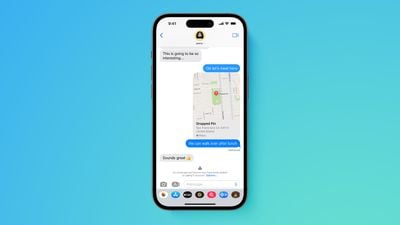
There is an iMessage Contact Key Verification setting available in the Settings app, but tapping it does not appear to activate any actual feature. It may require additional settings to be on such as Security Keys, or it may not yet be fully implemented.
Announced late last year, iMessage Contact Key Verification is designed for Apple users who are facing "extraordinary digital threats." Apple intends for iMessage Contact Key Verification to be used by journalists, human rights activists, government officials, and others who are in danger of malicious digital attacks from state-sponsored attackers or other malicious actors.
iMessage Contact Key Verification lets Apple device owners verify that they are messaging with the people they intend to message rather than a malicious entity that has intercepted a message or is eavesdropping on a conversation. In a conversation between two or more people who have enabled iMessage Contact Key Verification, Apple will send an alert if the cloud servers are ever breached and a conversation is vulnerable to an intrusion.
Users who enable this feature can also compare a Contact Verification Code in person, on FaceTime, or through another secure app to further verify their identity and who they are communicating with.
Apple said that iMessage Contact Key Verification would be available on the iPhone and other Apple devices at some point in 2023, and it is one of the last features we are expecting to see in iOS 16.
iMessage Contact Key Verification was initially announced alongside Security Keys for Apple ID, a feature that was enabled in iOS 16.3.
(Thanks, Steve Moser!)
Popular Stories
Apple may have canceled the super scratch resistant anti-reflective display coating that it planned to use for the iPhone 17 Pro models, according to a source with reliable information that spoke to MacRumors.
Last spring, Weibo leaker Instant Digital suggested Apple was working on a new anti-reflective display layer that was more scratch resistant than the Ceramic Shield. We haven't heard...
This week marks the 10th anniversary of the Apple Watch, which launched on April 24, 2015. Yesterday, we recapped features rumored for the Apple Watch Series 11, but since 2015, the Apple Watch has also branched out into the Apple Watch Ultra and the Apple Watch SE, so we thought we'd take a look at what's next for those product lines, too.
2025 Apple Watch Ultra 3
Apple didn't update the...
Apple has completed Engineering Validation Testing (EVT) for at least one iPhone 17 model, according to a paywalled preview of an upcoming DigiTimes report.
iPhone 17 Air mockup based on rumored design
The EVT stage involves Apple testing iPhone 17 prototypes to ensure the hardware works as expected. There are still DVT (Design Validation Test) and PVT (Production Validation Test) stages to...
Apple will likely manufacture its 20th anniversary iPhone models in China, despite broader efforts to shift production to India, according to Bloomberg's Mark Gurman.
In 2027, Apple is planning a "major shake-up" for the iPhone lineup to mark two decades since the original model launched. Gurman's previous reporting indicates the company will introduce a foldable iPhone alongside a "bold"...
While the so-called "iPhone 17 Air" is not expected to launch until September, there are already plenty of rumors about the ultra-thin device.
Overall, the iPhone 17 Air sounds like a mixed bag. While the device is expected to have an impressively thin and light design, rumors indicate it will have some compromises compared to iPhone 17 Pro models, including only a single rear camera, a...
While the iPhone 17 Pro and iPhone 17 Pro Max are not expected to launch until September, there are already plenty of rumors about the devices.
Below, we recap key changes rumored for the iPhone 17 Pro models as of April 2025:
Aluminum frame: iPhone 17 Pro models are rumored to have an aluminum frame, whereas the iPhone 15 Pro and iPhone 16 Pro models have a titanium frame, and the iPhone ...
All upcoming iPhone 17 models will come equipped with 12GB of RAM to support Apple Intelligence, according to the Weibo-based leaker Digital Chat Station.
The claim from the Chinese leaker, who has sources within Apple's supply chain, comes a few days after industry analyst Ming-Chi Kuo said that the iPhone 17 Air, iPhone 17 Pro, and iPhone 17 Pro Max will all be equipped with 12GB of RAM.
...



